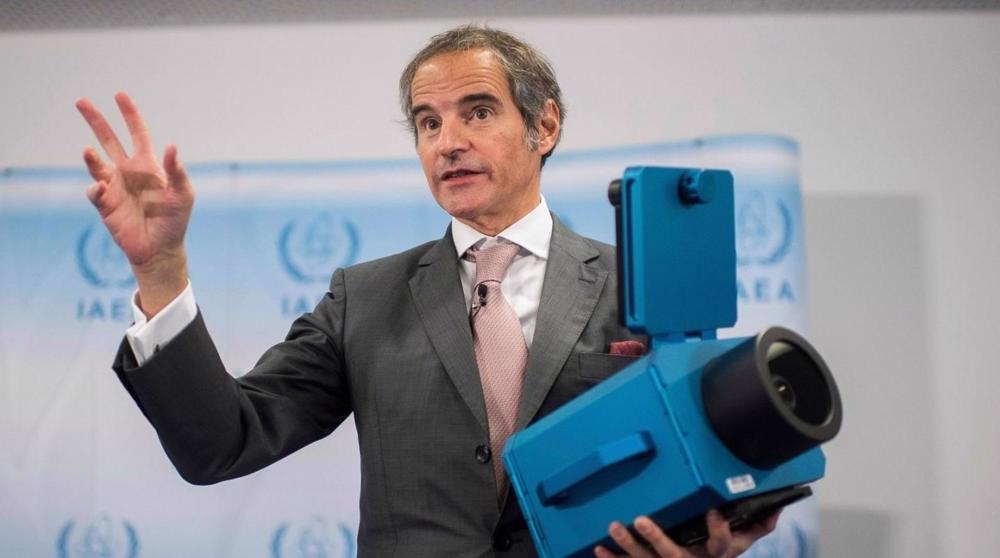Iran: IAEA camera memory was destroyed, contrary to Grossi's claim
An AEOI official refutes the IAEA's claims about the storage device of one of the cameras at the Karaj site.
-

IAEA Chief Rafael Grossi presenting the surveillance cameras used at nuclear sites on December 17, 2021 (AFP)
IAEA Director-General, Rafael Grossi, displayed a camera system similar to the one used in Iran's Karaj site, where centrifuge parts are manufactured, at a press conference held at the IAEA headquarters in Vienna, Austria.
Grossi claimed that critical footage from one surveillance camera at the facility had gone missing, though acknowledging that the camera - one of the four IAEA cameras placed at the facility - "had been destroyed" in a sabotage attack in June.
Iran removed the cameras, along with the destroyed one, and showed them to IAEA inspectors. However, Grossi asked in the meeting on Friday for "the missing memory card" of the destroyed camera.
“Where is it? So I'm hopeful they are going to come up with an answer because it's very strange that it disappears,” he told the reporter.
Later on Friday, Noor News, which is close to the Supreme National Security Council of Iran, quoted an official from the Atomic Energy Organization of Iran (AEOI) who explained that the camera’s data storage device was also destroyed in the attack.
The camera data storage device that the IAEA chief is referring to was destroyed in a sabotage operation, the unnamed official said, adding that “the IAEA must answer why it does not use its capabilities to prevent such sabotage attacks with known origins?”
The Iranian government had blamed "Israel" for the attack on the Karaj site on June 23 amid attempts by the Israeli occupation entity to derail the Vienna Talks, whose sixth round had been taking place at the time.
The Iranian government's spokesperson said at the time that the attack "caused a hole in the roof" of the building, with no human casualties reported. He also said that there was "insignificant" damage to equipment.
“The IAEA, in addition to its supervisory duties, has safeguarding responsibilities toward its members, and in this case, it should be held accountable for not preventing the threat against Iran's nuclear sites and not taking effective action in this regard,” the AEOI official further said.

 2 Min Read
2 Min Read








